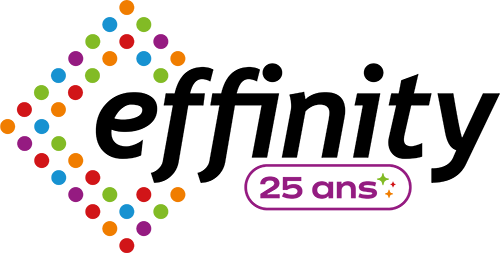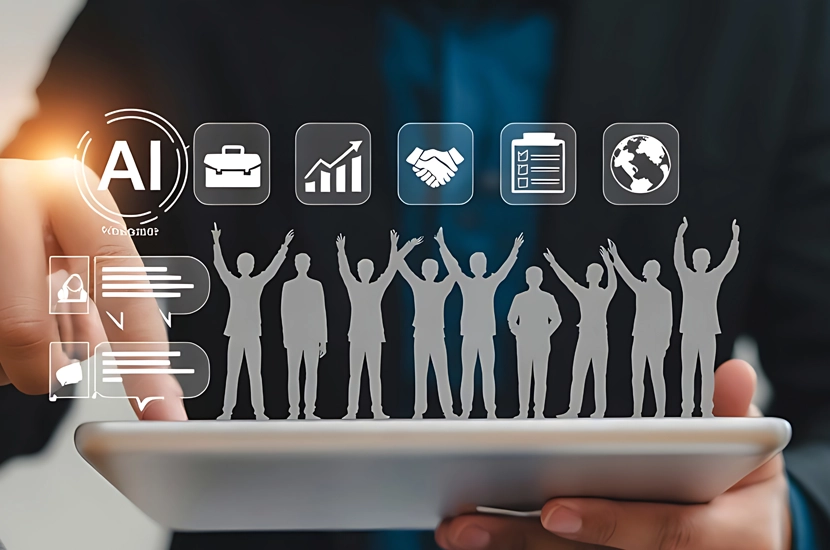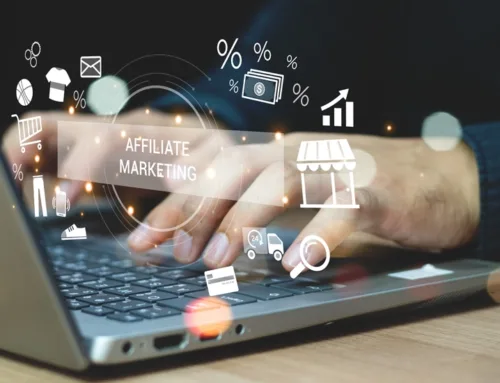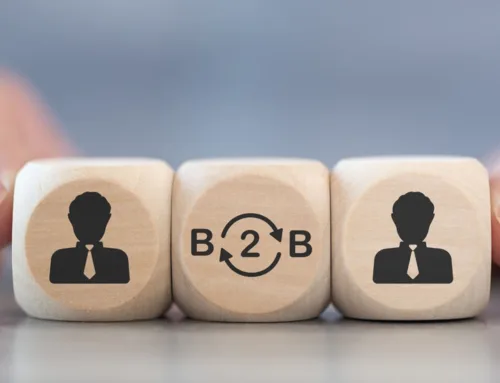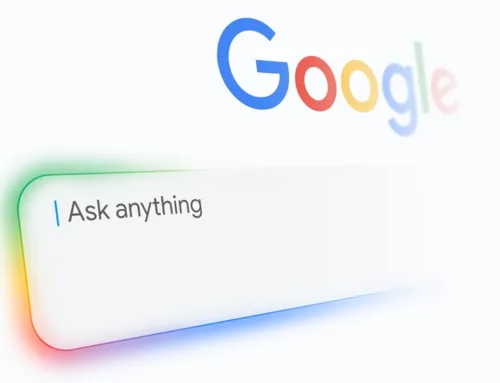Affiliate marketing has been growing steadily for years, driven by the diversity of publishers and content creators available: media sites, social network influencers, comparison sites, specialized blogs, cashback platforms, podcasters…
For example, Effinity federates a network of over 25,000 publishers and creators. For an advertiser, this wealth represents a tremendous opportunity, but also a challenge: how do you identify the right partners? How do you ensure that the affiliation programs offered to publishers really correspond to their audience?
Sourcing and matching are fundamental areas of expertise for an affiliation platform, to which the arrival of Artificial Intelligence brings real added value. By analyzing immense volumes of data (audience profiles, behaviors, performance histories),AI can automatically recommend the best associations between advertisers and publishers. However, AI alone is not enough: human expertise remains essential to validate, adjust and contextualize these recommendations.
Effinity has already implementedAI-based technological solutions to improve sourcing and matching on its affiliation platform.
The challenge of affiliate sourcing
A growing diversity of publishers and creators
Today, an affiliation platform like Effinity has to deal with an extremely wide range of affiliate profiles, including:
Media sites and specialized blogs, which reach qualified audiences around a specific subject (sport, travel, parenting, BtoB, ecology…).
- Influencers on Instagram, TikTok or YouTube, capable of mobilizing engaged communities.
- Podcasters and streamers, whose influence continues to grow.
- Users of forums such as Reddit, whose “authentic” discussions are becoming increasingly important in search results.
- Cashback and coupon code sites, long-standing players in performance marketing.
This diversity is a source of richness, but it also complicates the task of our experts who seek to identify the most relevant publishers for our customers’ campaigns.
Complex strategic choices
For each advertiser, our teams must answer several questions:
- Which publishers really fit the bill?
- Which designers will be able to relay the offer with authenticity?
- How do you balance the program between traditional publishers and emerging influencers?
To do this, we use external sourcing tools to identify potential partners for recruitment (Google searches, Similarweb analysis of sites similar to the brand’s traffic generators, competitors’ main sources, etc.).
While this method has proved effective, it relies on time-consuming manual searches or on existing relationships, with the risk of missing out on certain high-potential partnerships.
AI as an engine for intelligent recommendations
By complementing traditional methods,AI-based technologiesfor affiliate platforms bring real added value to partner recruitment. They open up new fields and new methods of investigation.
Audience and behavioral data analysis
AI enables fine analysis of :
- audience interests,
- their purchasing behavior,
- the content that generates the most engagement.
Thanks to this data, our platform can recommend affiliate programs that perfectly match a publisher’s audience profile, or suggest to advertisers publishers who share a strong affinity with their target.
Automated matching between advertisers and publishers
The role of AI is twofold:
- Publishers: offer them affiliate programs that are consistent with their content.
- On the advertisers’ side: suggest which publishers are most likely to effectively relay their offers, based on quantitative (audience, conversion rate) and qualitative (editorial affinity) criteria.
Continuous learning
AI progresses as campaigns progress. Every click, every conversion, every interaction enriches its predictive models, improving the relevance of future recommendations.
Real-life examples of AI matching in affiliation
AI can reveal obvious associations, but also more unexpected connections that open up new performance opportunities.
Classic examples
- Culinary blog: household appliance or delicatessen brands.
Beauty influencer: cosmetics advertisers.
Travel site: travel agencies or airlines.
These associations are still relevant, but AI goes much further.
Original examples revealed by AI
- Podcast on personal development: associated not only with meditation apps, but also with online training courses or premium stationery brands aimed at an audience seeking organization and well-being.
- Site specializing in adventure travel: links to outdoor equipment brands, as well as to insurers specializing in extreme travel.
- Gaming influencer on Twitch: connected to energy brands (drinks, healthy snacks), but also to neo-banks targeting young adults.
- BtoB media on entrepreneurship: aimed at SaaS publishers (management, HR and accounting software) and professional training organizations.
- Parenting blog: recommended not only to childcare brands, but also to health insurers, savings services or family tourist destinations.
- An urban gardening blog: recommended to a brand of ergonomic furniture for teleworkers (common audience: urbanites sensitive to comfort and well-being).
- A DIY YouTube channel: a link to an online course platform for web developers (“makers” audience who like to build physically as much as code).
- A site on local gastronomy: connected to an online bank offering premium payment cards (audience with purchasing power, accustomed to exclusive experiences).
- A running influencer: recommended to a brand of high-tech sleep products (sporting public attentive to recovery and overall health).
These associations illustrate the strength of AI: identifying cross-functional synergies based on audience affinity, rather than a simple sectoral logic.
Added value for each player
For advertisers
- Time-saving partner selection.
- Better relevance thanks to targeted recommendations.
- ROI boosted by more effective partnerships.
For publishers and designers
- Easier access to programs that are truly adapted to their audience.
- Better monetization of their content.
- Leverage their expertise through coherent partnerships.
For the Effinity affiliation platform
- Automate your matchmaking processes.
- Competitive differentiation through technology.
- Strengthening trust between advertisers and publishers.
The importance of expert control
AI does not replace human judgment
Algorithms can suggest relevant associations, but some criteria are difficult to quantify:
- an advertiser’s brand image
- a publisher’s credibility and editorial consistency
- the strategic context of a campaign
The key role of Performance Managers
On a platform like Effinity, Performance Managers play a central role:
- they validate the AI’s recommendations
- they adjust choices according to the advertiser’s precise objectives
- they support publishers in setting up campaigns
Essential complementarity
AI speeds up and makes sourcing more reliable, but the human touch guarantees strategic relevance and relational value. It’s this complementarity that makes all the difference.
Artificial intelligence is transforming affiliate sourcing and matching. It enables platforms to recommend relevant partnerships faster and more accurately, based on audience data analysis and continuous learning algorithms.
But the future of affiliate marketing does not lie in total automation. The combination of AI and human expertise creates a unique alchemy: AI brings power and speed, while experts bring discernment, strategy and interpersonal skills.
In a constantly evolving market, this AI + human duo is the key to even more effective affiliation.
